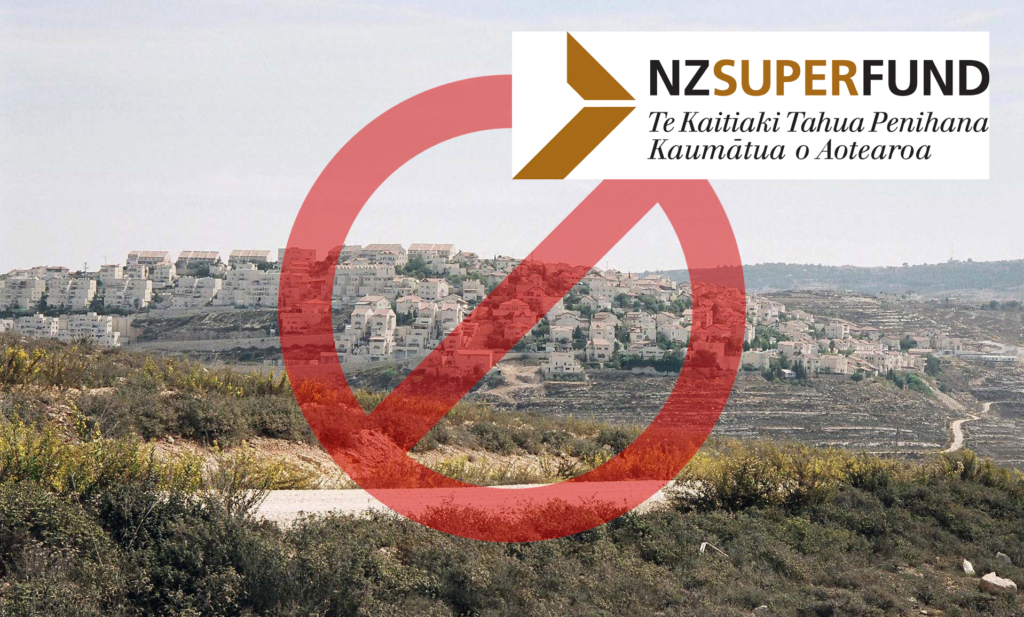Australia/Israel Review
AIR New Zealand: Super Fund move raises BDS questions
Apr 29, 2021 | Miriam Bell

Questions over just how much influence the Boycott, Divestment and Sanctions (BDS) movement has in New Zealand are being voiced following the NZ Super Fund’s recent divestment from five Israeli banks.
In March, the Guardians of New Zealand Superannuation, an autonomous crown entity and manager of the NZ$50 billion NZ Super Fund, announced it was ending its NZ$6.5 million investment in the First International Bank of Israel, Israel Discount Bank, Bank Hapoalim, Bank Leumi, and Bank Mizrahi-Tefahot.
The NZ Super Fund said it was doing so on responsible investment grounds as there was “credible evidence” that the banks provide finance for the construction of Israeli settlements in the West Bank.
“In our view, based on the information available to us, the companies’ activities are inconsistent with the UN Global Compact, the key benchmark against which the Guardians measures corporate behaviour,” it said.
Predictably, well-known opponents of Israel, like the Palestinian Solidarity Network chaired by anti-Israel advocate John Minto, greeted the news enthusiastically.
Green Party foreign affairs spokesperson Golriz Ghahraman told the Spinoff the decision “exemplifies compliance with domestic and international (sic) in terms of investment in Israeli occupied Palestine, which all NZ institutions and companies should be meeting.”
However, National Party MP Nicola Willis reportedly said at a select committee meeting that the fund’s decision was controversial and “viewed by some groups as potentially aligning New Zealand with an antisemitic movement (i.e.: BDS).”
She also asked if steps were being taken “to ensure consistency in the way [the fund] treats issues relating to human rights abuses.”
Willis’ question echoed concerns expressed by the Israel Institute of New Zealand (IINZ).
IINZ said the NZ Super Fund’s move undermined New Zealand’s reputation as a fair actor, as it was based on biased UN and NGO reports and meant the fund had “joined the discriminatory BDS campaign.” It was curious that it was only Israeli banks that had been divested from, and not those in China, Turkey, Russia, or Saudi Arabia, IINZ added.
A post on the blog Shalom.Kiwi also noted the glaring inconsistency between the treatment of Israel and of actual major abusers of human rights; “If ethical investment was a driving motivator, it would make sense that the countries engaging in state-sponsored genocide, ethnic cleansing, systematic repression of women, killing of homosexuals, and murder or imprisonment of dissenters would be targeted.”
One of the reports which informed the NZ Super Fund’s decision was produced by the organisation Who Profits, a leader in the BDS movement, according to Shalom.Kiwi. If so, this raises questions about the extent of the BDS movement’s reach into New Zealand.
Over recent years, the BDS movement in New Zealand – while a vocal presence – has “scored” few successes with its campaigns.
The movement’s biggest success occurred in 2017 when the internationally renowned singer Lorde cancelled her planned Tel Aviv concert in response to a letter from two Kiwi BDS activists.
Most of its other campaigns have fallen flat. In 2018, it campaigned for the exclusion of an Israeli singer, Victoria Hanna, from the WOMAD festival lineup, and disrupted the annual Doc Edge film festival to try to prevent the screening of Israeli documentaries. On both occasions, organisers refused to bow to its demands.
But last year BDS agitation resulted in the Wellington City Council abandoning its intention to adopt the International Holocaust Remembrance Alliance’s definition of antisemitism. And now the NZ Super Fund’s move hints at possibly growing BDS influence.
However, IINZ director Ashley Church said the BDS movement in New Zealand remains small and is made up of various splinter groups run by Minto and his friends.
“BDS has been banned in a number of countries similar to New Zealand so, globally, its influence is dimming. New Zealand is a bit of an outlier there and the fact that any credence is given to BDS here does raise a few questions. But it doesn’t have any impact on Government policies or decisions.”
He said the NZ Super Fund’s move reminded him of the “Palestine” map fiasco involving Immigration NZ a couple of years ago: “We’ll never know but, as with the map scenario, you have to suspect a couple of activists in the organisation might have used this as a platform to project their own worldview… I suspect there would be people in [the fund] regretting the decision but unable to back down on it now.”
Church said he believes the presence of BDS in New Zealand will wane further and most New Zealanders do not support the movement.
A good example of this can be seen in a Wellington meeting of political candidates during last year’s election, Church noted. Following a loaded question relating to Israel/Palestine, a succession of candidates from across the political spectrum critiqued the antisemitism inherent in the BDS movement.
Tags: BDS, Israel, New Zealand






